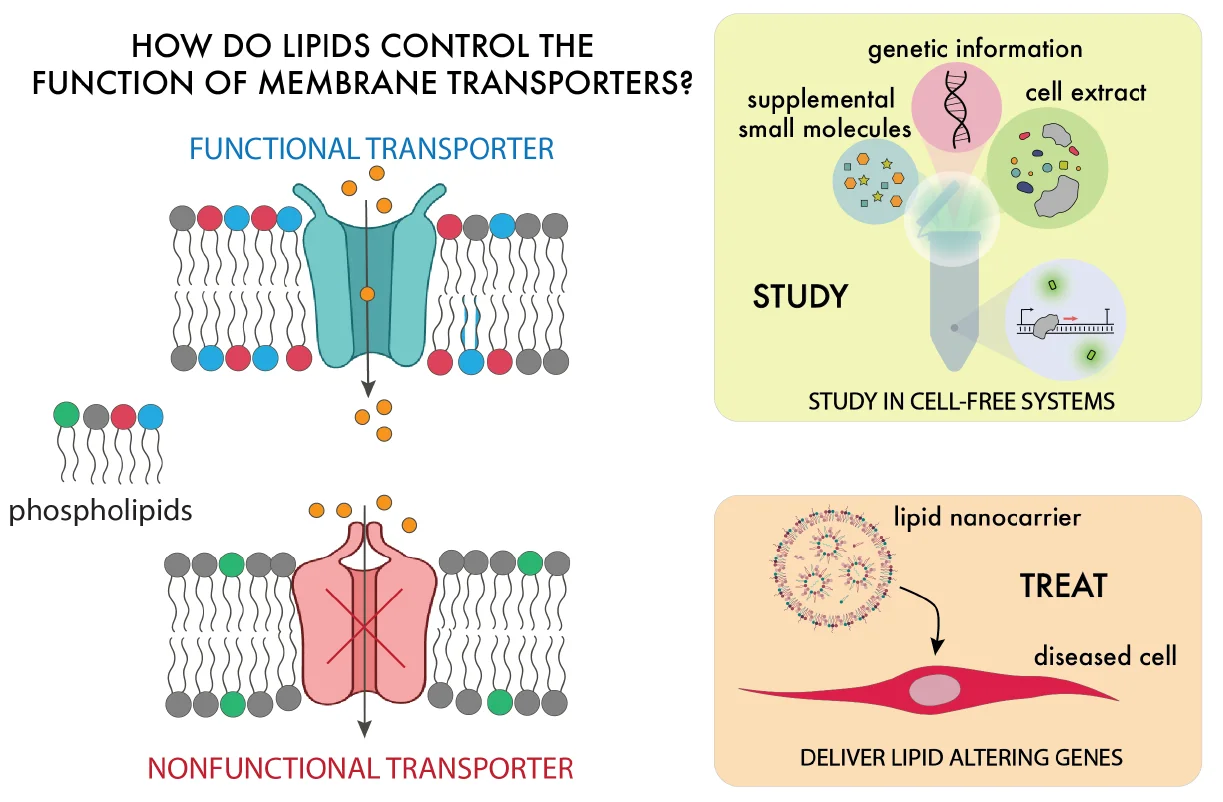Uncovering the Role of Lipid Membranes on Folding and Function of Membrane Proteins

The Kamat lab at Northwestern University works with biological membranes to study the role of lipids in cellular function and build artificial cellular structures for applications in biomedicine and biotechnology.
Phospholipids make up the boundary of the smallest unit of life: the cell. Changes in membrane composition accompany a variety of diverse diseases including diabetes and Alzheimer’s. However, for most of these diseases, the role of lipids remains unknown. At a fundamental, cellular level, lipid changes can affect the function of membrane proteins, leading to functional or dysfunctional proteins. Dr. Neha Kamat’s project aims to uncover the role of membrane lipids in controlling membrane protein function by using a bottom-up approach of building membranes containing membrane proteins and a top-down approach of altering the lipid profile in living cells. Her team’s work should lead to new understanding of the underlying mechanism of certain diseases as well as identify new, lipid-based therapies.

